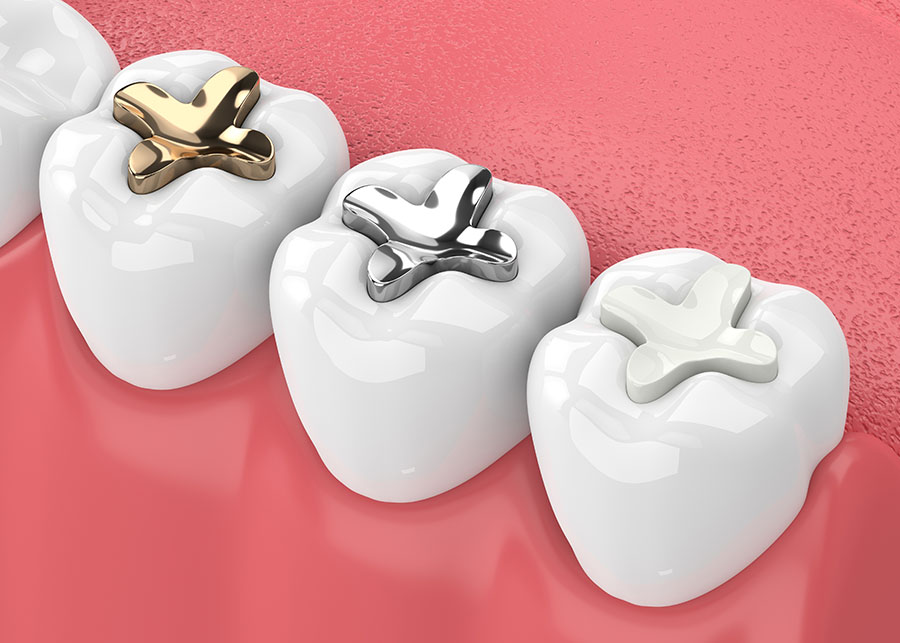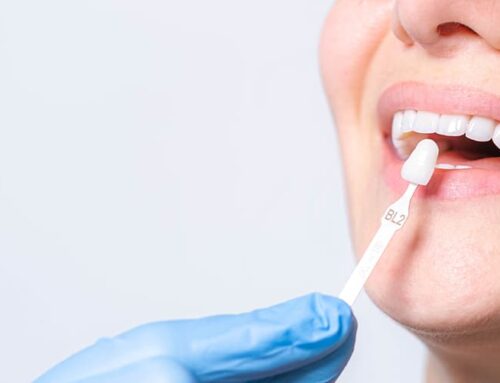Dental fillings are a common solution for a cavity or damaged tooth. When getting dental work, it’s important to understand your options and the longevity of different filling types.
Fillings are a common restorative dental solution used to repair cavities and minor cracks in teeth. This process involves a dentist removing the cavity, filling the area with dental filling, and then curing it to strengthen the teeth.
The Lifespan of Dental Filling Materials
Direct and indirect dental fillings can be made from various materials, each offering unique benefits and different lifespans.
Composite Fillings
These direct fillings are made from a mixture of plastic and glass particles. Composite fillings are tooth-colored and customized to your enamel for a seamless fit. They have an average lifespan of seven years, though they can last up to 10-12 years.
Amalgam Fillings
This direct filling is made from a mix of metals, such as silver, tin, copper, and mercury. They are silver in color, which means they won’t blend in with your natural smile. This common type of dental filling is long-lasting, with a lifespan of up to 15 years.
Glass Ionomer
This filling is tooth-colored and made of silica glass powder. These are direct fillings typically used for smaller cavities and can be more fragile, giving them a lifespan of around five years.
Gold Fillings
Gold inlays are indirect fillings, meaning they must be made in a lab before being placed. Due to the material, they can be more expensive, but also very durable. Gold fillings can last around 15-30 years.
Porcelain/Ceramic Fillings
These indirect fillings are made of minerals like quartz or kaolin, giving them a natural, tooth-colored appearance, making them indistinguishable from the rest of your teeth. Because of the material, they are resistant to staining and will last from 10-15 years.
What Impacts the Longevity of Dental Fillings?
No matter what material your dental filling is made of, several factors can affect its lifespan. Be aware of what can impact its integrity so you don’t have to replace it before it’s necessary.
Diet and oral hygiene
Good oral hygiene is the best way to care for your teeth and fillings. Brushing your teeth and flossing are key to maintaining your fillings in good condition. Along with that, it’s important to know how the food you eat can affect them. Hard and sticky foods can pull or crack your fillings. Certain materials can stain with frequent coffee or tea consumption. Eating sugary foods can cause new cavities to form and create a breeding ground for biofilms to grow on your fillings, weakening them.
Location and size
The location and size of your fillings can impact their longevity. Fillings in the back of your mouth endure more pressure from chewing, which can cause them to wear down quickly over time.
Dental maintenance
Regular dental maintenance will ensure your fillings have the longest lifespan possible. Your dentist can identify and address any issues before they compromise your fillings.
Signs Your Fillings Need to Be Replaced
General wear and tear, poor habits, or damage can lead to the need for a filling replacement. Knowing the signs that your dental fillings might be deteriorating is crucial for your oral health.
Here are some signs your filling needs to be replaced:
- Sudden sensitivity to hot or cold temperatures
- Biting down becomes uncomfortable or painful
- There are cracks or chips in the filling
- Your filling has fallen out entirely
- There is bacteria or decay under the filling
Let Premiere Dental Take Care of Your Teeth
You only get one set of teeth. Taking care of them can help prevent fillings, but once you have them, they need maintenance too. Regular cleanings will not only allow your dentist to identify any cavities or tooth damage that might need to be filled but also assess your fillings to ensure they’re in good condition and replace them when needed.
Our team of dental professionals offers comprehensive dental services, including dental fillings. Schedule your dental check-up at our McDonough, GA office, and let our dental hygienists take care of your teeth and any issues that may arise.






